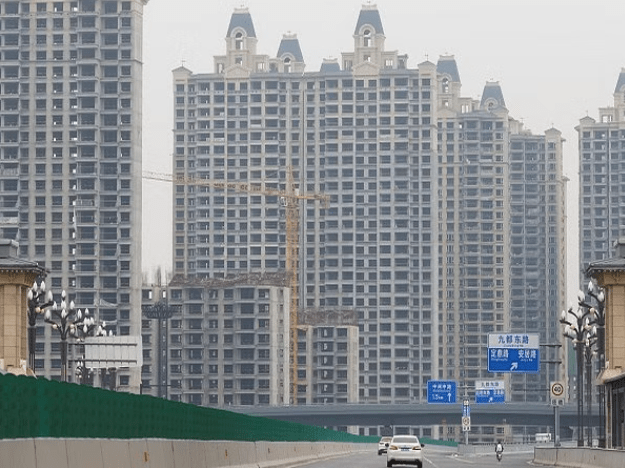According to the Wall Street Journal (WSJ), China’s local government exaggerated earnings by almost USD 12 billion last year via phony land sales.
There are around 70 areas where landowners sell their properties and state-owned holdings to one another, redistributing funds to make it look as if more money is coming in.
An worldwide daily newspaper with a business and economics emphasis, The Wall Street Journal is situated in New York City.
This latest information demonstrates how the real estate recession in China affected local governments more severely than previously believed. Local governments saw a loss of property-related revenue of roughly 23% in 2022 when the fraudulent transactions are taken into account.
The country’s real estate market not only contributes significantly to China’s GDP development, but land sales also provide a significant portion of local governments’ revenue.
Regional authorities were under pressure since they could no longer depend on the private sector developers for land sales as they withdrew from the market due to large debt loads and the dramatic drop in demand.
Local governments set up unique fundraising companies to finance projects in order to boost sales and get past restrictions on official borrowing. The Journal previously discovered that many were made days before land auctions were advertised to acquire property, according to the WSJ.
Auditors discovered that local governments misappropriated Beijing-provided funds, imposed arbitrary penalties, and provided guarantees to businesses that increased regional debt loads.
The concerns associated with their debt, which were exacerbated by higher spending because to zero-COVID policies, have already been raised by several governments. Despite the lifting of these restrictions at the end of the previous year, China’s economy is now stuttering, and young unemployment is on the increase.
This most recently caused S&P Global to lower its China projections. According to fresh predictions from S&P Global Ratings, China’s real estate sales would decline in 2022 by a greater amount than they did in the midst of the 2008 financial crisis.
In 2022, national home sales are likely to have decreased by more than 20%. Since last June, there has been a sharp rise in Chinese homeowners delaying mortgage payments on a few hundred unfinished projects until developers finish building the units, according to Inside Over.
A website called Inside Over focuses on news analysis, reporting, and perspectives from across the world.
According to studies, the majority of houses in China are sold before they are finished, providing developers with a significant source of cash flow. As Beijing tightened down on its heavy dependence on debt for development in the past two years, businesses have found it difficult to get funding.

Leave a Reply